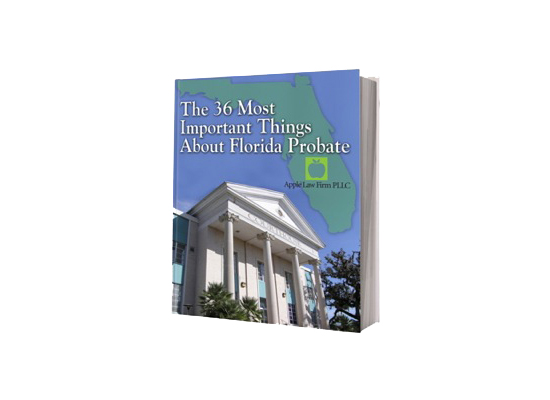LANDING SAFER
Nevis Trust Asset Protection Attorney
A Nevis Asset Protection Trust is an estate planning trust that holds assets to shield them from potential future creditors. Asset Protection trusts are among the best ways to shield assets from creditors, judgments, and lawsuits. They can help eliminate or reduce the likelihood of litigation by making it difficult or impossible for a creditor to reach assets. There are also domestic asset protection trusts, but these can have a 10-year look back period for transfers made if bankruptcy needs to be filed. The laws of St. Kitts and Nevis can offer superior protection and are recognized worldwide for their asset protection. The laws in Nevis permit the grantor and beneficiaries to be protected from claims by making it difficult, if not impossible, for most litigation to proceed.
Nevis trust are exempt from income taxes for non-residents. You can create the trust and be a beneficiary of your trust. Nevis does not recognize foreign judgments. There is only a two-year statute of limitations for fraudulent conveyance. A creditor cannot freeze assets while trying to litigate.
Asset Protection Advantages of the Nevis Trust
According to an article published by the Florida Bar, Nevis and the Cook Islands are recognized as foreign jurisdictions with “the most modern and comprehensive asset protection trusts legislation.”
There are many advantages of using a Nevis Trust for asset protection which include:
- Spendthrift provisions are valid and enforceable in Nevis and Florida. A spendthrift protection clause essentially blocks a creditor from attacking the trust assets of the beneficiary. This is done by making the assets that are not available in a reachable form to the beneficiary’s creditor. The Nevis Trust Act states: “Any rule of law or public policy which prevents a settlor from establishing a spendthrift or protective trust of which he is a beneficiary is hereby abolished.” Section 6.(4).
- Self-Settled Trusts are valid. This is a type of trust in which the Grantor, Settlor, or Trustmaker is also the beneficiary. Florida and many other states do not provide any protection for the beneficiaries of such trusts. Nevis does. Specifically, the Nevis Act states: “A settlor or trustee of a trust may also be a beneficiary of the trust.” Section 32.(4).
- Statute of Elizabeth overruled. This statute is the original fraudulent conveyance legislation and is the basis for fraudulent conveyance law in the United States and the United Kingdom. Section 49 of the Nevis Act expressly overrules the Statute of Elizabeth.
- Confidential. The Nevis Act has strong provisions protecting the confidentiality of information for a trust legally registered in Nevis.
- Foreign judgments are not recognized. See Section 28. This means a creditor must have a trial de novo in Nevis. A holder of a US judgment must relitigate their case in Nevis.
- Bond. The creditor must post a $100,000 bond to pursue an action against the trust property. See Section 55.
- Burden of proof. The burden of proof is on the creditor. See Section 24.(1)
- Increased standard of proof. The standard of proof is “beyond a reasonable doubt.” This is the highest standard in the common-law system and, of course, is the traditional in the United States for criminal law cases. In the United States, the burden of proof for a civil case is just more likely than not or a “preponderance of the evidence.”
- Contingent attorney fees are not allowed. This means that the creditor will most likely have to provide a substantial retainer to the attorney before any litigation starts.
- Nevis Lawyer is required. Before the litigation can begin, the creditor must hire an attorney licensed in Nevis who does not have a conflict with the trustee. This can be difficult as many attorneys represent the local banks and trust companies.
- Short Statute of Limitations. Nevis has a short two-year statute of limitations as follows:
- 24.(3) A trust settled or established and a disposition to such trust shall not be fraudulent as against creditor of a settlor
- if settled, established or the disposition takes place after the expiration of 2 years from the date that such creditors’ cause of action accrued; or
- where settled, established, or the disposition takes place before the expiration of 2 years from the date that the creditor cause of action accrued, the creditor fails to commence such action before the expiration of 1 year from the date such settlement establishment or disposition took place.
Excellent track record. Because of the short statute of limitations, most claims expire before the assets are discovered.
The following are required to establish a Nevis trust:
- Local Trustee: This is the person or company located on the island of Nevis that has the authority to manage the trust on behalf of the settlor and beneficiaries.
- Settlor: This person who creates the trust is not a citizen of Nevis.
- Beneficiary: These are the people who can receive property from the trust, and the beneficiaries cannot be citizens of Nevis.
- Funding: Once the trust is established, assets can be transferred to the trust or to a Nevis LLC, which the trust would own.
If you are interested in Asset Protection and discussing the various options that may make sense for you, please contact our Florida Asset Protection attorneys by using our contact us form, or giving us a call at 904-990-8000












